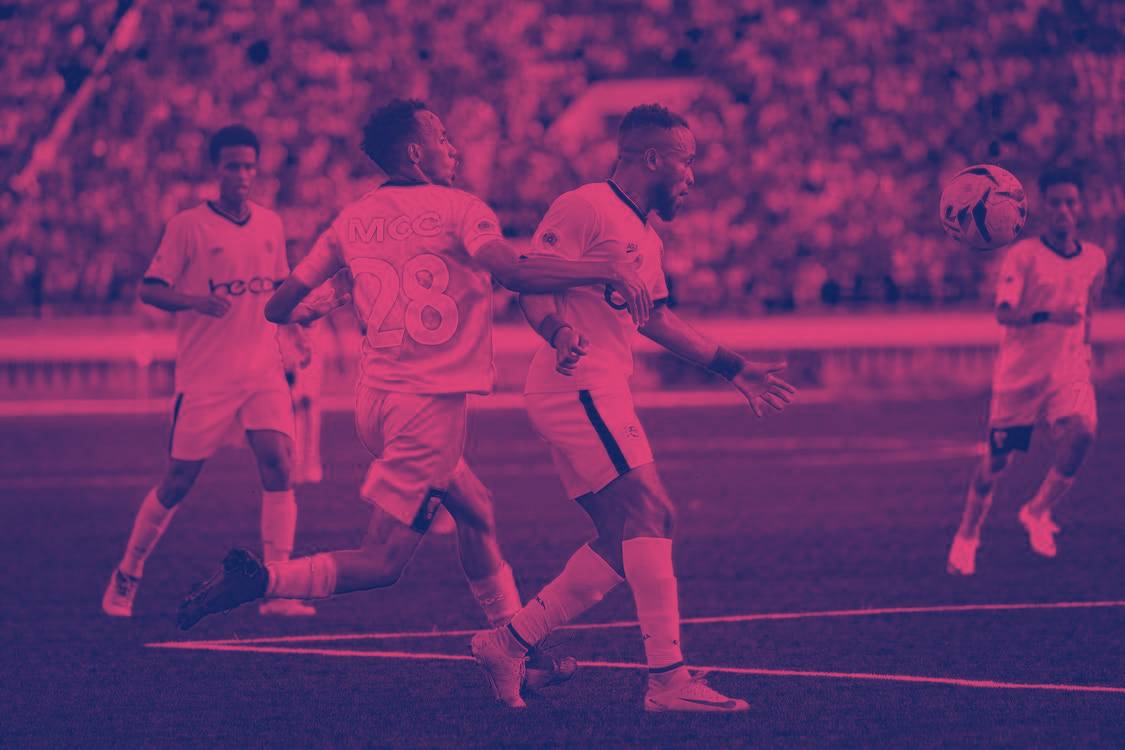The Premier Soccer League’s (PSL) match attendance at stadiums has been visibly low since the ban on spectators at sports venues was lifted in March, but this is hardly unexpected.
While most PSL clubs have retained their pre-Covid-19 ticket prices, Johannesburg-based Kaizer Chiefs announced a ticket price hike following the easing of spectator restrictions, and not everyone is happy about that.

Prior to the pandemic, the club’s match ticket prices were between R40 and R80, depending on the category of the match and the logistical requirements. Now, as a result of many developments and increases in overhead costs, its supporters will have to fork out a minimum of R70 for a general league match ticket.
Kaizer Chiefs, with the most expensive ticket prices currently, is the most supported club in South Africa and consistently records the highest match attendance figures in the PSL, at its 94,700 capacity FNB Stadium.
Even so, it is highly unlikely that the club is able to reach break-even point, at least, outside of the Soweto Derby fixture between them and Orlando Pirates, which enjoys massive support.
For context, in the last five years, the club recorded its highest match attendance average at just under 19,000 average spectators, in the 2017/18 season.
But this is hardly anything to write home about, considering that during the same period, the PSL’s highest overall match attendance percentage was just 31%, during the 2015/16 season.
You can read our story on the PSL’s match attendance statistics here: Have Covid-19 spectator restrictions affected SA’s football teams negatively? Apparently not
Which brings about the following question: Is Kaizer Chiefs’ minimum match ticket pricing really that expensive?
How much does it cost to watch other top-flight football clubs in other parts of the world?
Elsewhere in the world, like in the US’ Major League Soccer (MLS), England’s English Premier League (EPL), and Brazil’s Campeonato Brasileiro Série A (Brasileirão), you could pay twice as much as Kaizer Chiefs’ minimum pricing at least, and almost eight times more than Kaizer Chiefs’ minimum pricing at most, for a general league match ticket.
At face value, it seems unreasonable to bemoan the PSL’s match ticket prices, however, there are a couple of factors to consider:
Firstly, the market dynamics in South Africa and the other three countries are not the same. Their citizens have more disposable income, given that there is more economic activity in these countries than in South Africa.
For instance, in 2020 South Africa recorded a lower gross domestic product – at $301.9-billion – compared to Brazil’s $1.4-trillion, England’s $2.7-trillion, and the US’ $20.9-trillion.
Stadiums are also more accessible overseas, with better public transport options than in South Africa, where the cost of getting to matches here can be more expensive than the price of the ticket itself.
Secondly, there is an enormous demand for match tickets, and equally high match attendance figures in these countries when compared to South Africa. For example, in the last five years, the EPL recorded its lowest overall match attendance percentage during the 2016/17 season at just under 90%.
Additionally, football clubs in other countries are community-based entities, whereas in South Africa, most of the support nationally, is absorbed by the big three clubs: Kaizer Chiefs, Orlando Pirates and Mamelodi Sundowns.
In England specifically, arguably the world’s biggest football stronghold, EPL match tickets sell out very quickly, even with stringent conditions in place for the sale of tickets.
Thirdly, there seems to be more value for money in attending live matches overseas, as the football standards in the other three countries are significantly higher than South Africa’s.
Brazil, England and the US are well within the top 20 in the latest Fifa rankings, whereas South Africa presently falls way outside of the top 50.
These countries also boast some of the world’s best players in their premier division club football.
So is this a fair comparison?
When you dig deeper, the comparison between the PSL’s match ticket prices with those of the MLS, EPL and the Brasileirão, might not be a fair one, given that the cost is likely relative to their populations and their unique dynamics.
While R70 may not seem like a lot, with the ever-rising cost of living in the world’s most unequal country, the value proposition has to be justifiable enough to motivate armchair supporters to go and watch live matches at stadiums.
Kaizer Chiefs, Mamelodi Sundowns and AmaZulu, have tried to diversify their offering since welcoming fans back to stadiums, by adding entertainment before matches and during half-time. It remains to be seen whether they will be consistent, and if these efforts will pay off in the long run.
Or perhaps South Africans are not as sports crazy as imagined as, even in the country’s most popular sport, there evidently isn’t much of an appetite to attend live matches at stadiums.
In recent times, not even billionaire-backed Mamelodi Sundowns has been able to fill stadiums at the required 50% maximum capacity, even when match attendance is free, during premium fixtures such as the CAF Champions League.
Note: We collected the foreign ticket prices in their original currencies, converted them to Rands, and rounded them off to the nearest 10.
